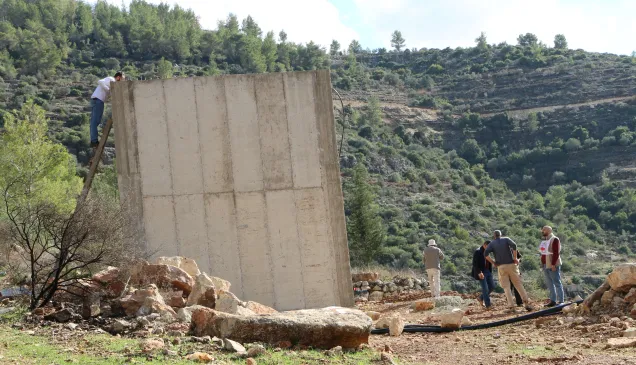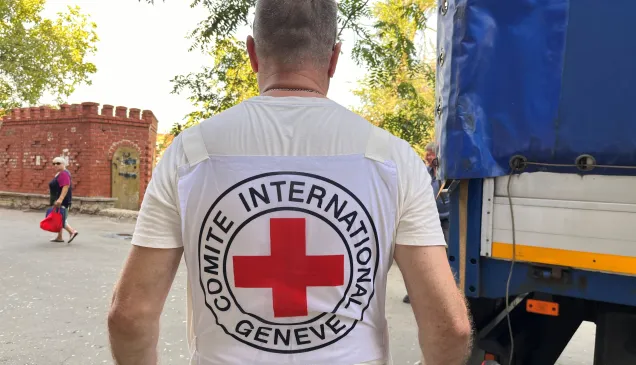Chair, Excellencies,
In September 2024, Brazil, China, France, Jordan, Kazakhstan, and South Africa launched, jointly with the ICRC, a global initiative to galvanize political commitment to international humanitarian law (IHL).
They called upon the High Contracting Parties to the Geneva Conventions to join this initiative to solidify sustained political will to ensure respect for, compliance with, and implementation of IHL. The co-chairs of the Global IHL Initiative workstreams and my own country, Slovenia, have answered this urgent call.
I am honoured to deliver this joint statement on behalf of the co-chairs of the workstream on Protecting Civilian Infrastructure, Algeria, Costa Rica, Sierra Leone, and Slovenia. We are also heartened that Australia; Austria; Belgium; Brazil; Bulgaria; Canada; Chile; China; Colombia; Croatia; Cuba; Cyprus; Czechia; Denmark; Egypt; Finland; France; Georgia; Germany; Greece; Guatemala; Hungary; Indonesia; Ireland; Italy; Japan; Jordan; Kazakhstan; Kenya; Luxembourg; Malta; Mexico; Moldova; Montenegro; Netherlands; New Zealand; Nigeria; Norway; Pakistan; Peru; Philippines; Poland; Portugal; Romania; Saudi Arabia; Serbia; Slovakia; South Africa; Spain; Sudan; Sweden; Switzerland; United Arab Emirates; Uruguay; the European Union have decided to align themselves with this statement.
Excellencies,
When civilian infrastructure is attacked, civilians are killed and injured. They are left in shock, forced to flee. Their access to essential services is disrupted or entirely severed due to the damage or destruction of the infrastructure that provides them.
When hospitals are attacked, interfered with, or misused for military purposes, the wounded and sick are left without adequate medical care, and medical personnel and patients are injured or killed. Entire populations can be deprived of one of their only lifelines.
These consequences are avoidable. IHL was designed precisely to prevent and mitigate them.
Excellencies,
Under the framework of the Global IHL Initiative, we hosted state consultations on the protection of civilian infrastructure in April. The messages we heard were clear.
The object and purpose of international humanitarian law is, and has always been, humanitarian. It was created to protect. It is a body of law that affirms that even in the most intense wars, there are intransgressible limits to how parties to armed conflict can conduct their hostilities.
Yet the gap between these limits and the realities we have witnessed across the globe, over the past years and decades, is unacceptable.
These limits are too often ignored or turned on their head and used to justify the very destruction and violence that they are meant to contain.
We have seen that attacks on civilian infrastructure have taken place, not to weaken the adversary’s military capabilities, but to achieve purely political aims, undermine economies, or demoralize civilian populations. At stake is our most crucial infrastructure, including our energy and communications facilities, financial institutions, transportation infrastructure, water and food production capacities, and schools.
We heard the same message with respect to the protection of hospitals during the dedicated consultations in May.
Indeed, one of the hallmarks of armed conflicts has been that allegations of misuse of hospitals have been met with repeated attacks against these vital facilities. It should be stressed that hospitals must be respected and protected in all circumstances to preserve their humanitarian function.
Excellencies,
We cannot allow ourselves to collectively trample what we established, after having experienced the most devastating wars in history.
Today, it is our collective responsibility to recommit to the fundamental rules of IHL. Civilian infrastructure must be protected. Hospitals must be protected.
We must preserve and reaffirm the humanitarian and protective object and purpose of IHL.
The Global IHL Initiative is your pathway for doing so.



